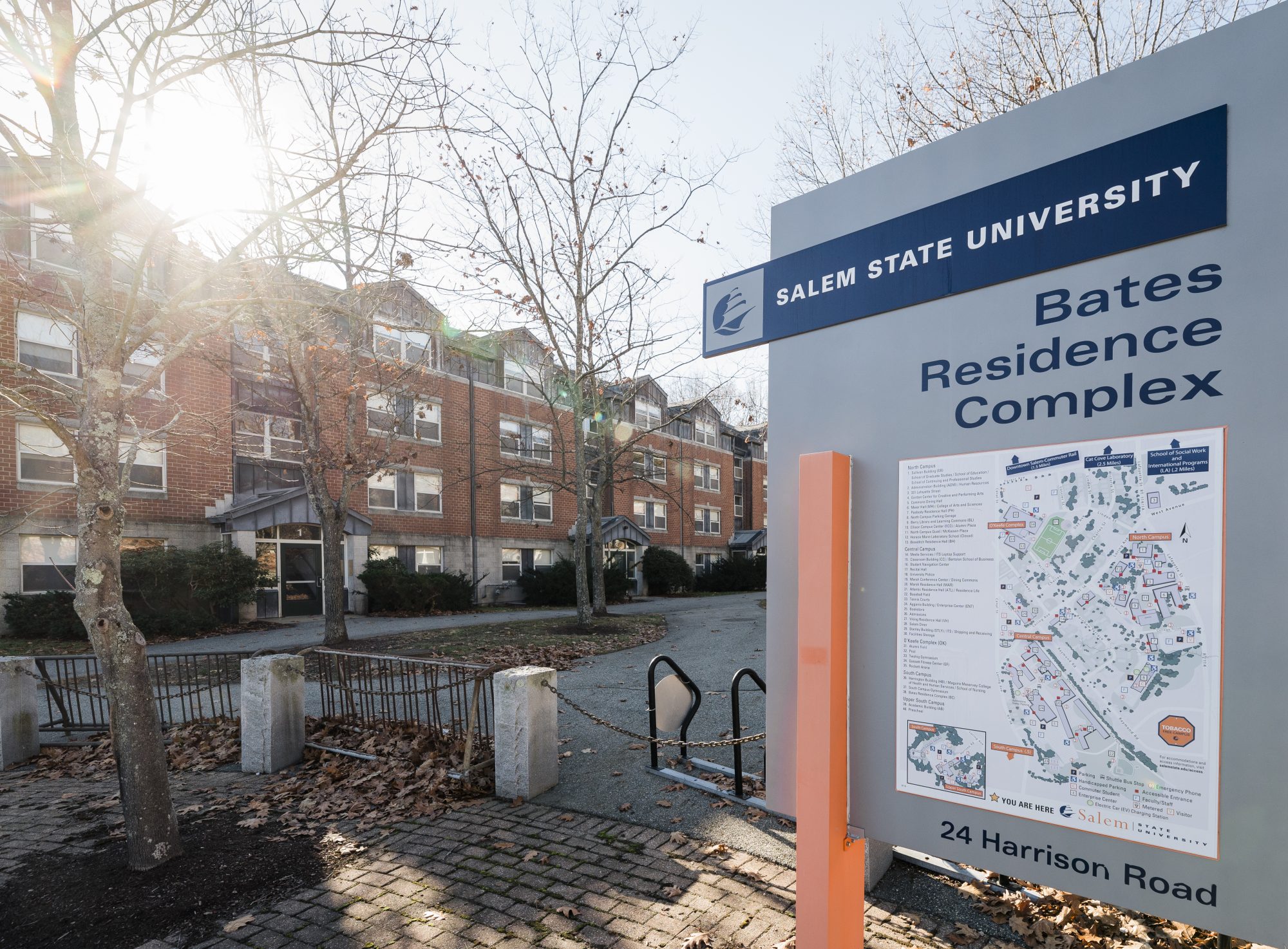SALEM — The Lynn-based nonprofit Centerboard, under contract with the Massachusetts Department of Housing and Community Development (DHCD) and Salem State University (SSU), is working to temporarily convert the university’s vacant residential units in the Bates Complex into temporary housing for homeless families.
The Bates Complex, which Salem State closed earlier this year as part of a long-term plan to sell its South Campus, will likely house 50 to 60 families from the end of November until the spring of 2024, DCHD officials said.
“This vacant space allows us to help alleviate a humanitarian crisis, and we are happy to do our part in collaboration with the city of Salem, the Commonwealth and Centerboard,” said SSU President John Keenan.
A statement released earlier this week from the office of Mayor Kim Driscoll said that the university’s decision to take in homeless families will fill a statewide need for shelter space and affordable housing.
“Massachusetts has seen an influx of families that are new arrivals over recent months. This fact, coupled with the lack of affordable housing for existing housing-insecure families in Massachusetts, has put a strain on the Commonwealth’s emergency shelter program, which does not have sufficient capacity to meet this demand,” said Dominick Pangallo, the mayor’s chief of staff. “The Commonwealth is working with communities to temporarily house families in need at alternative housing sites until the system can stabilize and, where possible, permanent housing options can be secured for families in need.”
Centerboard CEO Mark DeJoie, whose organization will prepare the single and two-story townhouses for families and manage the site’s daily operations, said that although the site is in relatively good condition, his organization is working to ensure that the units are brought up to code in the next few weeks.
“What we do, and we’ve been doing for a while, is we provide services to families that are homeless, to provide transitional assistance,” DeJoie said. “ It’s been shut down, but it was still in good condition. We have to bring everything up to health and safety codes, so that’s what’s being done as we speak.”
DeJoie said that the complex will likely take in two or three families a week, slowly building up to its projected capacity. He said that the complex will house homeless families, regardless of where they come from, but that the first wave of residents will comprise of individuals who are currently in Salem’s shelter system.
“We don’t know the names of the families that are coming in, nor do we know their ethnicity, but we’ve been told the first set will be persons that originally became homeless while in Salem,” said DeJoie.
Driscoll, in a written statement, expressed approval of the program.
“Salem is a welcoming and compassionate community,” Dirscoll said. “We’re working closely with our state partners, with SSU, and with our School Department and other community stakeholders and agencies to help welcome these families and ensure they receive the support they need.”

